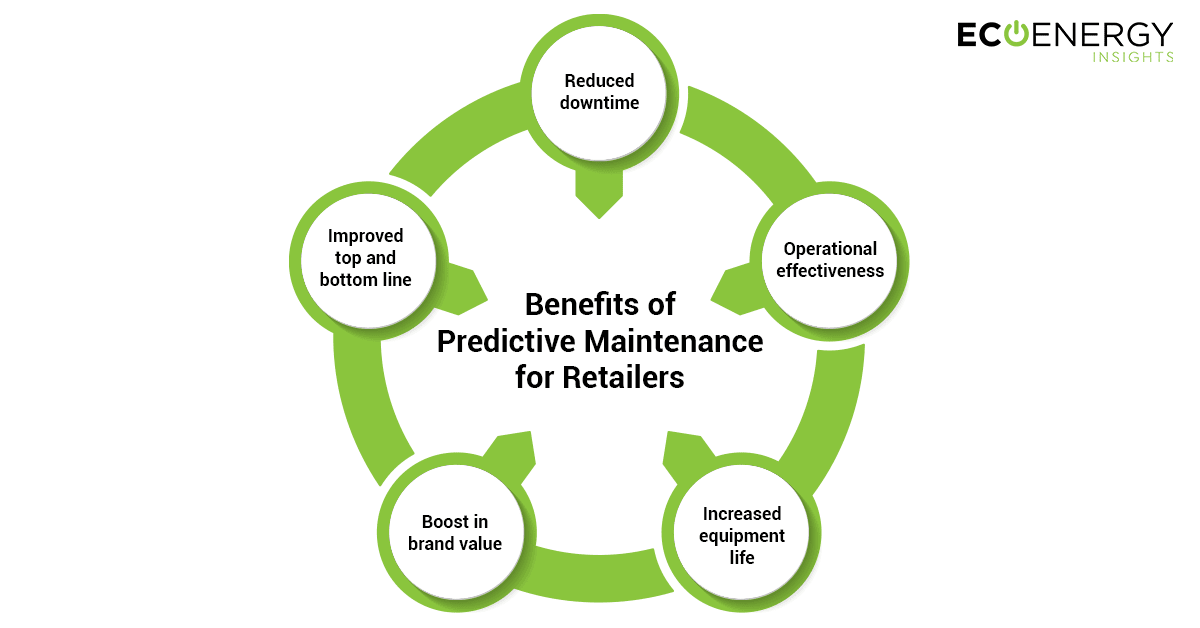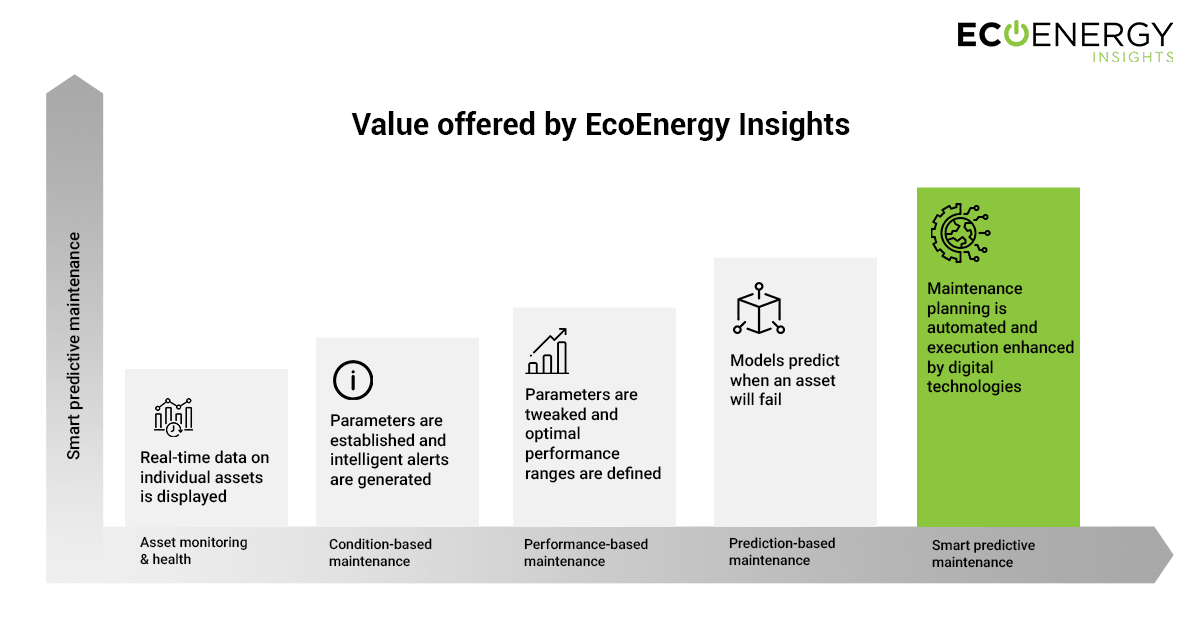We elevate building operations for retailers, across store formats
Five Considerations When Choosing an AI Solution for Your Retail Enterprise
While the ability to predict the future has always enticed mankind, its accuracy has been an aspect of debate. Data science is addressing this issue and is instrumental in accurately predicting future events associated with equipment and its performance.
The Industrial Revolution 4.0 is powered by unprecedented technological advancements with cutting-edge technology and analytical solutions delivering massive value across industries. The key advancements that mark this era are Big Data, the Internet of Things (IoT), Artificial Intelligence (AI), Data Analytics and technology-enabled remote services that automate and drive business operations with intelligent actionable insights.
While economies across the world continue to recover from the disruption caused by the COVID-19 pandemic over the past two years, it has significantly affected the retail sector. We see reduced foot traffic in retail stores, thereby compelling leadership teams to adopt and accelerate digital transformation of store operations. As part of this digital transformation, data and the resulting intelligence tend to be the solution for addressing the business needs of hour, i.e., operational excellence, improved customer experience and sustainable growth.
Predictive maintenance is a data-driven analytical approach to estimate when preventive maintenance needs to be performed on in-service equipment for it to work continuously and efficiently. This approach aims at reducing unnecessary or delayed maintenance of equipment. This can reduce costs and the possibility of downtime due to equipment failure compared to the traditional, schedule-based preventive maintenance approach.
Operations and maintenance data, along with equipment data derived from connected IoT devices, is collected, processed, and analyzed on an Artificial Intelligence of Things (AIoT) platform. Such platforms are typically powered by intelligent ML algorithms to forecast device failures based on equipment health and usage patterns. This helps in planning preventive maintenance based on the actual condition of the equipment and addressing issues before they occur.
The retail industry continues to stay dynamic and operate on an ever-transforming set of operational guidelines that are increasingly data-driven and evolving to keep up with consumer expectations. As digital and physical purchasing channels blend into one, to set themselves apart, retailers must consistently innovate to bring customers back to their stores.
One such innovation is the application of AI in retail operation through Heating, Ventilation and Air Conditioning (HVAC) systems in smart commercial buildings.
For a sector like retail, where equipment dependency is high for operations, investing in digital maintenance can yield multiple benefits including equipment reliability, equipment uptime and maintenance cost savings.
According to a report published by McKinsey, there is a potential for some companies to improve equipment availability by 5-15% and reduce maintenance costs by 18-25% by adopting fully digitized predictive maintenance.
“The average company can reduce its spend on preventive maintenance by up to 50%” as noted in a market study by ARC Advisory Group. Another report by the same firm finds that “only 18% of assets have an age related failure pattern, while a full 82% of asset failures occur randomly. This means 82% of assets are not actually in jeopardy of failure due to age, and the preventive maintenance performed on assets is ineffective.”
This is where predictive and condition-based maintenance become instrumental in making maintenance more effective.

Adopting predictive maintenance involves changing current operations and requires advanced technical skills and expertise in diverse equipment and control systems, along with the capability to analyze data and derive meaningful and precise predictions.
The prerequisite for a predictive maintenance approach is data, both operational data and data that is directly sourced from the equipment through IoT devices. Along with this, an intelligent AIoT platform is required to process this data into actionable insights. As a best practice, it is recommended to outsource this to a recognized service provider or a PaaS (Platform as a Service) provider, with a proven capability of delivering maintenance management as a service in the retail sector. This reduces the time, effort and most importantly the cost of developing the platform independently. With the right support and coordination, the maintenance service provider must be able to set up the infrastructure to provide the maintenance management service with a predictive approach through its AI platform and deliver it as proposed.
The digitization of maintenance in the retail sector is now becoming more mainstream, and in today’s age, is an important requirement in running store operations. At EcoEnergy Insights, we have the technology, such as the CORTIX™ AI and IoT platform, and the expertise to enable retailers to launch and scale up the use of predictive maintenance.

The CORTIX platform offers predictive insights and prescriptive recommendations on connected equipment. When the recommendations on the individual connected equipment are implemented, it helps facility managers bring visibility, agility and predictability to operations. BluEdge™ Command Centers offer 24x7 remote commissioning, monitoring and diagnostics as well as quick response support for on-site team and service technicians.
Solutions from EcoEnergy Insights leverage the CORTIX platform, combining artificial intelligence and IoT connectivity with the proactive actions of the BluEdge Command Center team, to digitally transform retail store operations.
April
Yudhajit Tornekar Manager, Pre-Sales, EcoEnergy Insights
Yudhajit Tornekar manages pre-sales at EcoEnergy Insights. He is responsible for designing outcome-based services and packaging AI-enabled, IoT solutions for clients. He works on strategies for business expansion and supports sales and client engagement processes. Yudhajit has a passion for sustainable practices and driving efficient energy utilization in buildings.



